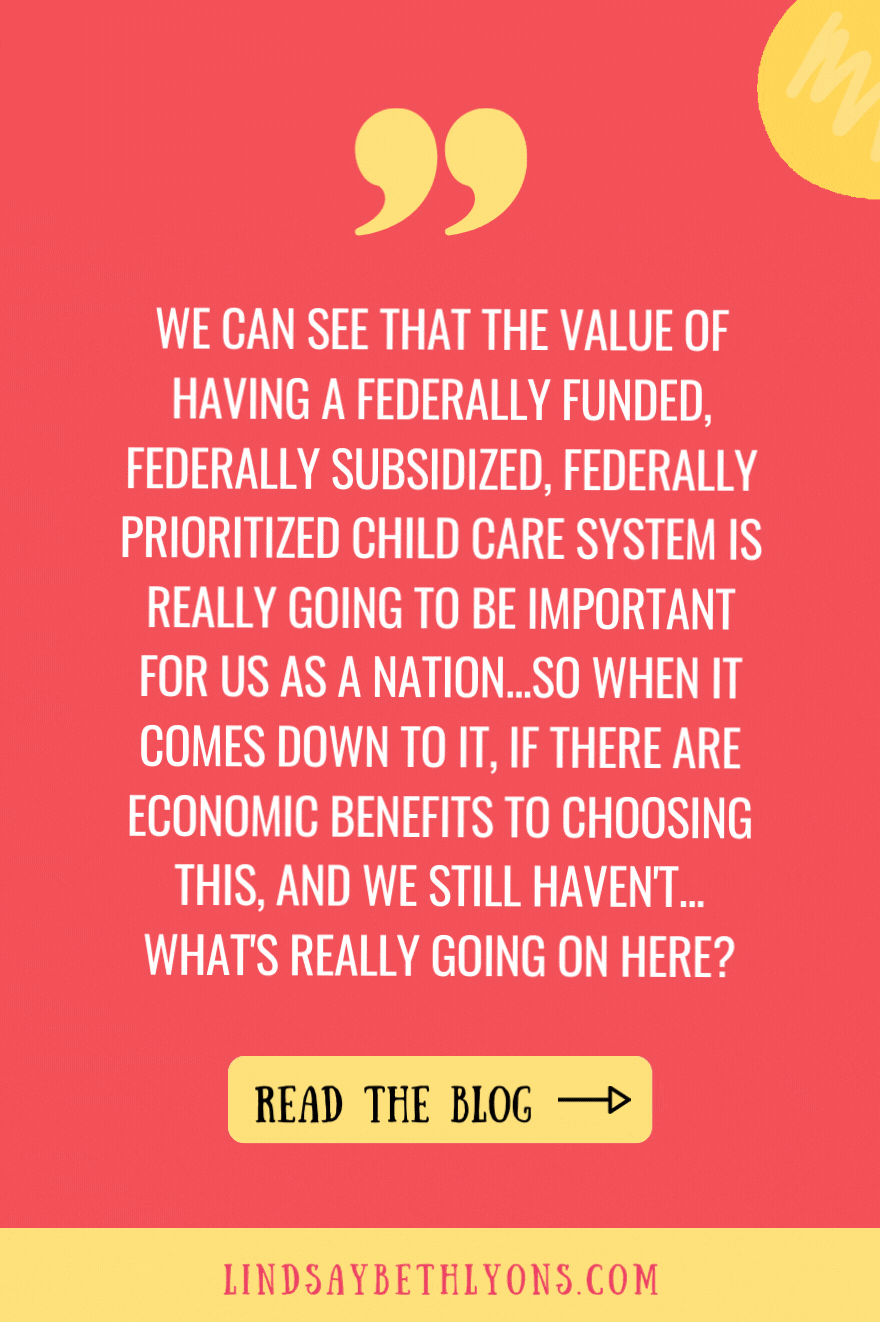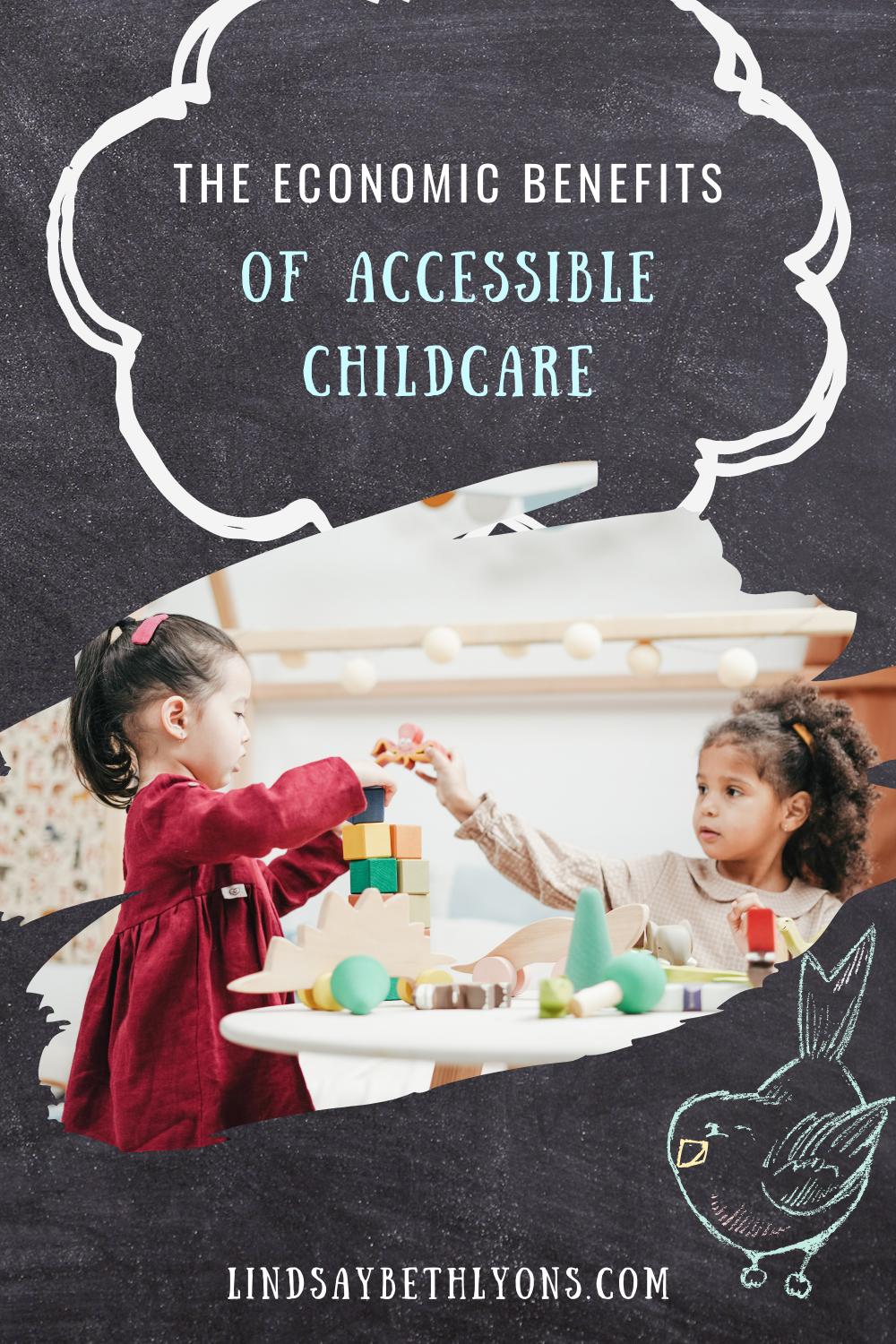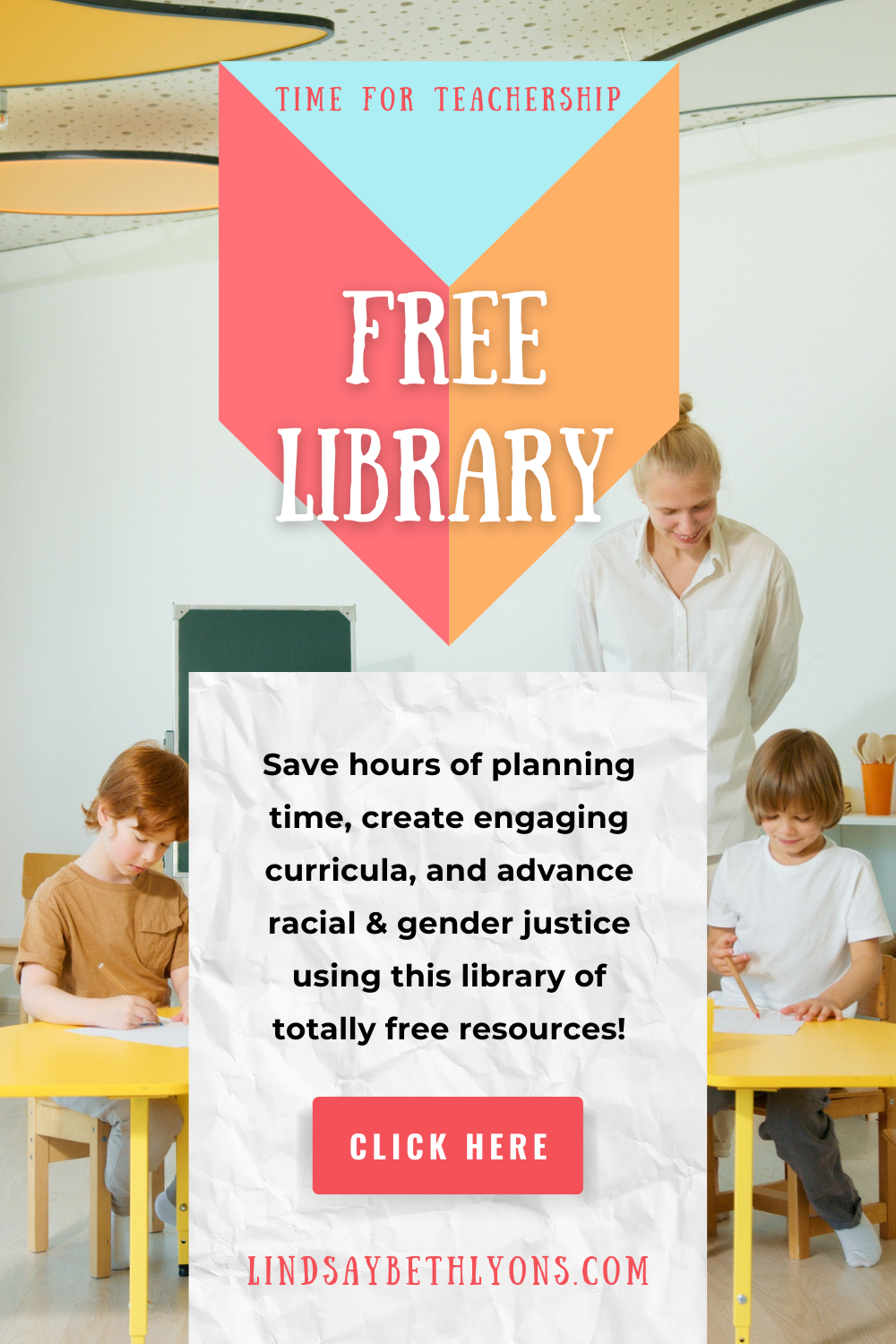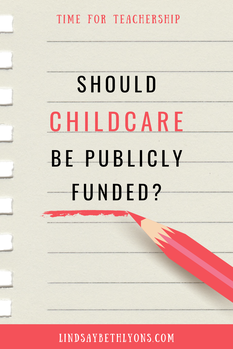|
Listen to the episode by clicking the link to your preferred podcast platform below: Welcome to episode 65 of the Time for Teachership podcast. Today's episode is packed with talking about system, systemic issues around parenting, my own exciting announcements and what to expect in the next several months. Let's dive into the episode. Hi, I'm Lindsay Lyons and I love helping school communities envision bold possibilities, take brave action to make those dreams a reality and sustain an inclusive, anti racist culture where all students thrive. I'm a former teacher leader turned instructional coach, educational consultant and leadership scholar. If you're a leader in the education world, whether you're a principal, superintendent, instructional coach or a classroom teacher excited about school wide change like I was, you are a leader. And if you enjoy nerding out about the latest educational books and podcasts, if you're committed to a lifelong journey of learning and growth and being the best version of yourself, you're going to love the Time for Teachership podcast. Let's dive in. So I am recording this episode in advance. By this point, I may just be on parental leave. 00:01:18 So I am excited to welcome a new child to the family and as a result I'm taking a few months of parental leave this spring. Now, what that means for you as a listener? Don't worry, we have a bunch of things coming. So for the next few months we are going to have pre recorded guest episodes. They are new episodes with guests. They have been recorded a few months prior and we're also bringing back the how-to series, two how-to series actually, from last season that featured a lot of solo shows from me giving you really the how to deep dive into two different topics. And those topics are efficient planning for better work life balance, and also justice centered curriculum design. You'll see one in March and one in July. The other episodes will drop weekly. We may even have some bonus episodes for you that are just for subscribers, so make sure you're subscribed to the show that feature themselves kind of positioned at the end of each of the how-to series. 00:02:21 So this will be new episodes with guests As we dive into today. I am definitely in the parental leave mindset in terms of just recognizing as the first time parent, how difficult and challenging it is to take leave from a job. I am self employed but you know, thinking about what it is like as a person who might be employed by a private company, a public company, government company, really all of these different situations that people may find themselves in. And I always bring it back to these systemic issues that impact us as people, regardless of what our jobs are, but also through an education lens. So I kinda want to talk about that today as I'm thinking about my own journey and also just recognizing that on this show, we really tried to call out inequity and injustice as it's happening at the structural level and then thinking about what we can do, so ending with an action step that we can take to address the systemic injustice. So, when I think about childcare for teachers, for students, I don't know, we'll pivot maybe back and forth between some personal and then some some larger structural pieces here. 00:03:29 I had always heard that childcare was expensive and then going on this journey myself to find child care, to try to figure out how to budget for childcare, to recognize that so many people opt to not work because childcare is almost more costly than what they are paid, because people are so underpaid and childcare is incredibly expensive and not publicly funded as of yet, in many places. There are all of these different factors that really take people and oftentimes women out of the workforce, right? And so as we think about this kind of systemic piece, you know, I'm going to go into a little bit more here, but I also want to just name that, in addition to being so expensive, it's also not super accessible. So finding a place for people to send their children is actually way more complicated than I had realized. And so there are so many structural factors, we're going to talk about what those are. Let's see why that kind of condition is the way that it is. 00:04:31 And so let's maybe just dive in there In terms of federal inaction, right? The actions that have not been taken to the federal level. The US spends only a 3rd of 1% of GDP on childcare. Compared with an average of a set of, you know,.74%, so almost a full percentage point among the organization for economic cooperation and development countries. And so if we think about that, first of all, that's a very, very small amount, right? We're talking about less than 1% point in general. But then we have, you know, less than half, almost like almost a third of the cost that other countries who are in similar economic brackets to us are spending on childcare. So it just really does not seem to be a priority for the federal government. In terms of access, as I mentioned, it's really hard to find childcare. And so half of people living in the states live in places where there's no licensed childcare provider or where there are three times as many children as child care slots. 00:05:38 So it's really challenging to actually find a childcare slot for someone who's planning to go back to work. Childcare costs a typical family, about a third of its income. And I would venture to guess that that is even higher in particular areas. Often I've heard it referred to as a second mortgage, right? And I can attest that that absolutely rings true for my personal experience as well. In terms of the benefits, like what if we had a world right? Like the question of dreaming usually comes up at the start of my interview episodes, but you know, thinking about what that world could look like if we were to prioritize and fund childcare in a meaningful way. There are economic benefits of quality, affordable childcare in that those benefits economically extend for generations, research has shown. And some studies actually showed that it, you know, more than pays for itself. So it's not like we're actually spending money on it because that return is coming back to us as a country. Relative to comparable developed nations with more supportive family policies, 00:06:43 and I'm reading from a research report here conducted by the Federal Reserve Bank of Boston, such as paid family leave protections for demanding a change to part time work schedules, publicly provided childcare services. The labor force participation rate of women in the United States has fallen behind, coming in between two and 14% points lower. The 19 other "developed nations in 2016". And so we see this pushing out of oftentimes women. But many family members and caretakers, we know just statistically that a lot of people with children are actually single moms and identify as single moms, and so this is a really important gender aspect to this conversation as well. They're being pushed out of the workforce, different from choosing, right? Because it's not a choice if you feel like it's your only option. And so we lose as a nation that economic output. Not that I think we should measure quality of life and success as a country in terms of purely economic output. But if that's the argument being made for why we're not spending money on childcare, it makes sense to actually look at the research and find that it does pay for itself, right? 00:07:51 And it does create more economic wealth for the country as a whole. There's also a wealth of social benefits for children, for parents, and academic benefits for children later on when we enable family members to choose and set up policies for child care that works for them. When we think about, you know, what's going on in the childcare provider lens, the average hourly wage for educators who are in these early childcare centers is slightly more than $12 an hour. So we've been having these conversations about $15 minimum wage and really making sure that our living wage is, is that a living wage or minimum wages living wage? I should say $12 an hour is under that, right? So home based providers even make less than that and their income is really tied to how many people they can get into their homes. That's subject to lots of fluctuations, right? Being a business owner is challenging. 20% of early educators have lost their jobs in the pandemic In the summer of 2020 and countless programs have permanently closed their doors as a result of COVID as well. 00:09:00 And so we think about all of these various constraints on the childcare providers themselves. We can see that the value of having a federally funded, federally subsidized, federally prioritized child care system is really going to be important for us as a nation to create all of these benefits that we ultimately want and help people live their fullest lives. It's also about what we value, right? And so when it comes down to it, if there are economic benefits to choosing this, and we still haven't, like what's really going on here? And so the only time that the United States has actually done something similar to universal public childcare was during World War Two. So the Lanham Act in 1941 directed federal funding to high quality government run child care centers. And the goal for this was just that women could work as part of the war effort, because the war effort was deemed priority, right. That was something that we valued. In all the legislation, it was highly emphasized that this was an emergency procedure and these were not permanent centers. 00:10:07 Interestingly, researchers found that children who went to these centers, particularly if they were from low income families, performed better educationally and economically throughout their lives compared with children who were too young to be eligible for the care. So this is a beneficial system. We have tried it before because we decided we valued it in that moment as a nation. It has worked. It has created lots of benefits for the children. Universal child care also had strong bipartisan support when it was proposed in the Comprehensive Childhood Development Act in 1972, but President Nixon vetoed it because it "had family weakening implications". So as we think about that piece, right? We also see this idea of this preservation of what I would name as you know, similar to Bell Hooks' white supremacist capitalist patriarchy, right? She calls that system that those interlocking systems there by their name. And she calls out that this is a huge part of a lot of our our social problems. That preservation of the white supremacist capitalist patriarchy rings 00:11:19 so true in the case of childcare and parental leave, right? We value certain types of labor, right? We have a temporary childcare program during World War Two for the war effort, but it's temporary. We overrule where we veto legislation that has bipartisan support because we want to control the role of women, people who identify as women right? Here is what a woman is, it's equivalent to a mother. And also there's a racial component here as well. So, we're bringing in the white supremacist capitalist patriarchy part, right? BIPOC women are not even seen as mothers in this context, they're caretakers to other people's children. They are not invited to stay at home. We're looking at this, we're looking at the role of the white women, right? And so this is really interesting to see the intersections of how not only this gender dynamic is at play, but also the racialization of women within gender roles, 00:12:22 that again fuses together the weight supremacy and the patriarchy that is at play here. If we talk about parental leave here, right? This all of this carries over to parental leave policy and thinking about why we don't have that, in addition to why we don't have paid childcare. In an international context, among 41 countries, only the United States lacks paid parental leave. There's actually an article entitled just that. And so what we found is that the smallest amount of paid leave that is required of any of these other 41 countries is about two months. So two months is the bare minimum of paid leave internationally among similarly economically well off countries. Several of these countries actually provide a year or more of paid leave. The United States does not have such a thing, although we're working on policy to equip all workers to have this in terms of current access for US 00:13:26 workers. In 2020, only 20% of private sector workers have access to paid family leave to care for a new child or a new family member. When we look specifically at low-wage workers, there are a lot less likely to have access to paid leave. So for example, 8% of workers in the bottom wage quartile, so these are folks who earn on average less than $14 an hour, had access to paid family leave in 2020. Again, that's 8% in the bottom quartile. Black and Latino ex workers are less likely than white non Latino ex workers to have access to paid family and medical leave. Again, a racialized aspect of this white supremacist capitalist patriarchy piece. After the Federal Employee Paid Leave Act went into effect on October 1st in 2020, an estimated two million federal employees then had access to 12 weeks of paid parental leave. But again, this is just if you were a federal employee. Also, there are state specific access points. So California, New Jersey, Rhode island, New York, Washington and Massachusetts, as well as Washington D. C. 00:14:31 have established paid parental leave via a payroll tax. So it's also interesting to determine how they have successfully funded that tax, right? And that is through a payroll tax for higher earners. And it has been working well. The other piece of this that I want to bring into the conversation is what about student parents? And so these are folks who are in either high school or college who are students and they are also parents. So they have their own children. They're still trying to go to school, get their degree. These students are often left out of conversations about equity and justice. We don't see these students oftentimes in larger conversations about policy or supports as an identity group in and of themselves, right? In terms of that access to their identity is often missing from the conversation. And so starting with college, because oftentimes we have these conversations, I think my perception is that these conversations exist a bit more at the college level. So you know, about 22% or so of undergrads are parents, 70% of those student parents are mothers, 00:15:42 so identifying as female, and 62% of them are single mothers. Over 44% of student parents, these are all student parents, work a full time job. And I think as a result of all of these things, right? 52%, so just half of student parents drop out of college before earning their degree. So more than half drop out. Less than half are making it to graduation and actually earning their degree. This is a critical piece of the college experience. If you are a parent and going to college, you're also likely to be working a full time job in many, many cases and you are parenting, right, and trying to figure out daycare, and trying to figure out the cost of your tuition, and trying to stay on top of your grades. This is a conversation that needs to continue in terms of support for this group of student parents at the college level. I also want to make sure that we're naming and thinking about high school student parents. So 30% of all teenage girls who dropped out of school at the high school level cite, 00:16:49 It's because of pregnancy and parenthood. Rates among Latin ex students and African American students, black students are higher than for white students. Only 40% of teen mothers finish high school. So these are all statistics that are really pointing to this gendered racialized dynamic here. And again, only 40% of teen moms finished high school, being, you know, again, less than half. Fewer than 2% of those students who are pregnant during high school finished college by age 30. So even given a few extra years there, a few, basically an extra decade, fewer than 2% are going to go on to finish college. And again, I want to emphasize this is not an individual student issue. It's not like being a worse learner, right? It's these structural pieces that are in place or not in place to make it more difficult, more challenging, lend less support to these students who are in this particular situation. Now, many solutions that we talked about 00:17:52 focus on pregnancy prevention and of course, I am a huge proponent of comprehensive sex education. Super important. But I also think that conversation ignores the students who have children currently, right? And so having a look at some of the legislation that has been passed and the considerations that have been made. In California in 2015, there was a bill passed by California Latinas for Reproductive Justice. They wrote the bill and the bill was entitled A B 302 Lactation Accommodation. And it was passed. So it allowed lactating students to bring their breast pumps to school, store their breast milk and provide private and secure rooms to deal with any breastfeeding needs that they have. And so this, the policy manager for this organization who wrote it really emphasized that there's so much, you know, so little support that it impacts so much the decision to make parenting decisions like breast feeding or not breast feeding based on whether you have that support in your educational environment. 00:18:56 So it's important to enable children, students to parent their children in whatever way that they would like. One positive case study I want to name is New York City's Free Department of Education run daycare centers, which are currently housed in 33 public schools across New York City. This is known as the LYFE program, L. Y. F. E. And it's existed since 1982. This is a program that enables students who bring their children to the school that they attend, but if they attend a school in which the program is affiliated, leave them in the high quality day care center, go to school themselves, come back, get their child at the end of the day and go home. They don't have to worry about daycare. They know that their child is right there if they need to run down, if they their child gets sick, if there is a fire drill, they have people who are, you know, bringing them outside, all of that is taken care of. They get to be full students as they enter the school building, right? They have this taken care of. This is something that I believe we can do. We can advocate to your own Department of Education to create a system like the LYFE program. Or if you're already part of the LYFE program where you're in New York where you have a system like this, advocate for increasing the number of schools involved in the program. 00:20:15 And again, this is a D. O. E. funded, Department of Education funded program that has a high success for students in terms of graduation rates. I think it's like 90% of students who have this support will actually go on to graduate. So in conclusion, I've gone on a long ramble of the structural factors that really are important to consider, both as adults and employees of an educational system, and also for our students who are navigating the educational system. As I go off on my parental leave and we are on a personal note, very fortunate that my partner's job just added a parental leave policy this year which will give him three months of paid leave, the show will go on as I am gone. So again, there's new prerecorded guest episodes that will air weekly. We are bringing back those two how-to series: around efficient planning for better work life balance and justice centered curriculum design. You have access to my website for tons of free resources as well as self paced courses that are open for enrollment at any time. 00:21:19 That's www.lindsaybethlyons.com. And again, there might be some bonus episodes that are for subscribers to the podcast only. So make sure you are subscribed and I will see you in a few months. Continue to think big, act brave and be your best self. Thanks for listening, amazing educators. If you loved this episode, you can share it on social media and tag me @lindsaybethlyons or leave a review of the show, so leaders like you will be more likely to find it. Until next time leaders, continue to think big, act brave, and be your best self. Links from the episode:
0 Comments
Leave a Reply. |
Details
For transcripts of episodes (and the option to search for terms in transcripts), click here!
Time for Teachership is now a proud member of the...AuthorLindsay Lyons (she/her) is an educational justice coach who works with teachers and school leaders to inspire educational innovation for racial and gender justice, design curricula grounded in student voice, and build capacity for shared leadership. Lindsay taught in NYC public schools, holds a PhD in Leadership and Change, and is the founder of the educational blog and podcast, Time for Teachership. Archives
May 2024
Categories |





 RSS Feed
RSS Feed